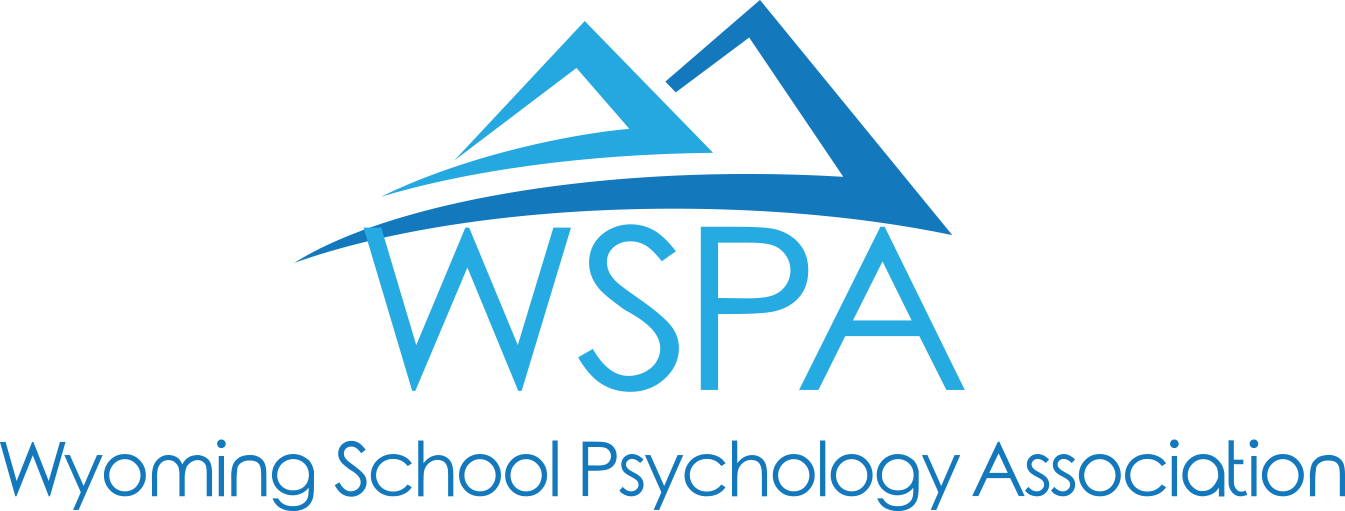***Post written by Dustan Blair, Ed.S School Psychologist USCD# 1, Southwestern Representative for WSPA***
There are several theories or approaches when it comes to the idea of the specific learning disability of dyslexia. Our district has been in deep discussion regarding several aspects of dyslexia: do we use the term “dyslexia” during eligibility meetings or within our evaluation reports? Do we consider our universal screening methods to be legitimate screening procedures for dyslexia? Should we have a set evaluation process or set of guidelines when approaching a suspected educational disability of dyslexia? For the focus of this blog, the information presented will be on the topic of utilizing the term dyslexia within evaluation reports and eligibility determination meetings, as this could turn in to a multipage document.
A letter from the United States Department of Education on October 23, 2015, written by Michael K Yudin, stated the following:
“The Office of Special Education and Rehabilitation Services (OSERS) has received communications from stakeholders, including parents, advocacy groups, and national disability organizations, who believe that State and local educational agencies (SEAs and LEAs) are reluctant to reference or use dyslexia, dyscalculia, and dysgraphia in evaluations, eligibility determinations, or in developing the individualized education program (IEP) under the IDEA. The purpose of this letter is to clarify that there is nothing in the IDEA that would prohibit the use of the terms dyslexia, dyscalculia, and dysgraphia in IDEA evaluation, eligibility determinations, or IEP documents. Under the IDEA and its implementing regulations “specific learning disability” is defined, in part, as “a disorder in one or more of the basic psychological processes involved in understanding or in using language, spoken or written, that may manifest itself in the imperfect ability to listen, think, speak, read, write, spell, or to do mathematical calculations, including conditions such as perceptual disabilities, brain injury, minimal brain dysfunction, dyslexia, and developmental aphasia.” See 20 U.S.C. §1401(30) and 34 CFR §300.8(c)(10) (emphasis added).”
As per discussion within the school psychologist department here in Evanston, WY, the determination of dyslexia means less that the underlying deficits. Many school psychologists may feel comfortable identifying types of dyslexia such as dysphonetic or phonological dyslexia, surface dyslexia, mixed dyslexia, or deep dyslexia, although do all dysphonetic dyslexics or surface dyslexics present themselves exactly the same. Our discussion led us to identify the specific areas of deficit within the subtypes of dyslexia as much more important than the label. What kind of intervention will be best for an individual that is 7 years old that is unable to decode CVC words as compared to an 11 year old that is unable to manipulate sounds within words or identify how words change when one sound is changed. Will our approach to intervention and strategies look different for cases with different deficits and/or with different ages?
Do we feel like it is necessary or beneficial to use the term “dyslexia” with parents, teams, and within legal documents? Why or why not?

Like many things in our profession I think it depends on the case. Lately, I have had many parents asking for evaluation specifically for Dyslexia in which I use the term in my reports as it directly relates to the parents concerns. In other cases, when there has not been a request for Dyslexia assessment I avoid using the term to unnecessarily confuse educational eligibility with a medical term.
I have been avoiding the word because I feel like parents think it has a different meaning than it does. But lately I have been wondering if this is a bit of a silly stance. When parents ask about dyslexia, I tell them that we evaluate for reading disabilities and dyslexia would fall under that.